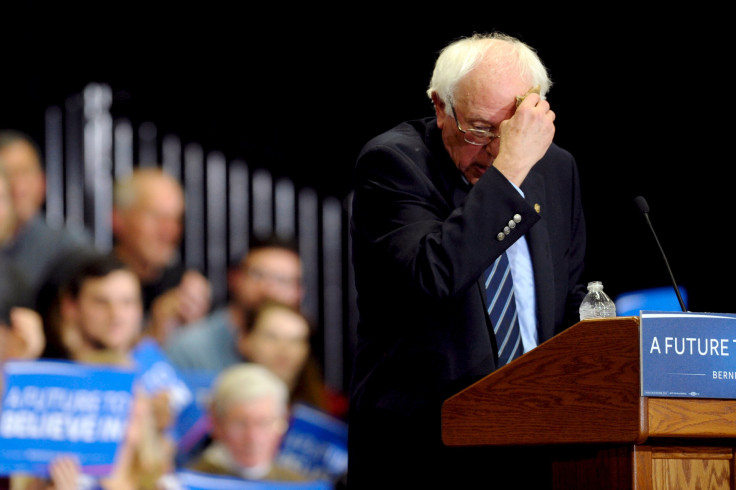Democratic Debate: What Does The DNC Voter Data Breach Controversy Mean For The Party?

UPDATE: 7 p.m. EST: The controversy over the Democratic National Committee database breach netted Bernie Sanders' campaign $1 million, a person familiar with the campaign's finances told the Washington Post Saturday. Sanders went on the offensive against the DNC decision to cut off his campaign's access to the database, prompting supporters to open their wallets. The Sanders campaign sent supporters an email, asking them to sign a petition. Though there was no plea for funds, there was a "donate" buttom at the bottom of the missive.
Original post:
The Democratic National Committee’s accusation that presidential hopeful Bernie Sanders’ campaign improperly accessed voter information compiled by rival Hillary Clinton has shown the limitations of how the party keeps its information and how it could affect party members, industry experts said. Tech insiders said the DNC's use of a single software service for candidates raises trust concerns for the party's candidates.
Democrats use, and are dependent on, the NGP VAN service for voter information. The DNC said Friday Sanders' campaign exploited a software error to look at voter information confidentially compiled by Clinton, CNN reported, including turnout projections for the Iowa caucuses and New Hampshire primary.
Sanders sued the DNC Friday after the party blocked his campaign from accessing its voter database. His campaign eventually was allowed back into the database, but Sanders accused the DNC of trying to undermine his campaign and tipping the scales in Clinton's favor.
The voter files in question are essential to modern campaigning. Campaigns use the information in a profile — such as voter registration data — to build statistical models to target voters and determine how best to promote their messages, the New York Times reported. The campaigns and parties that use it also can add information to strengthen the database.
NGP VAN has claimed it uses a protective firewall to keep campaigns from accessing one another's information, but this week's data breach, which erupted just ahead of the third Democratic primary debate Saturday, has raised questions about that protection. And some software companies have criticized the DNC for giving the service sole distribution rights, Politico reported.
"It’s a monopoly that’s been created and forced down the throats of all Democrats,” John Phillips, co-founder of Aristotle, a nonpartisan political data firm, told Politico. "Monopolies are notorious for overcharging their customers, screwing their customers. That’s what’s been going on on the Democratic side for quite some time."
"If each campaign cannot be guaranteed total privacy and security for their data, no candidate can trust that the national party or private company handling those data won’t play favorites," Bruce Willsie, CEO and president of L2, a nonpartisan vendor, told Politico. "Centralizing all of these services with a single private company places the DNC and all Democratic candidates in a risky situation.”
Permanently blocking the Sanders campaign from looking at the information could have been a major setback for the candidate as the Iowa caucuses fast approach. The move by the DNC came amid a campaign in which some have said the party has stacked the odds in favor of Clinton.
Some supporters of both Sanders and Martin O’Malley, the former governor of Maryland, who also is seeking the Democratic nomination, have complained the low number of debates — six compared with 26 held in 2008 — favor Clinton, the front-runner, who traditionally would have more to lose in a debate. Besides the low number, the O’Malley and Sanders campaigns also have said the timing of the debates have given Clinton an advantage, Vice reported.
Will @HillaryClinton give @BernieSanders a pass on the data breach during tonight’s debate? https://t.co/logaWHuWSR pic.twitter.com/Ufbj1IWJgy
— CNN (@CNN) December 19, 2015"Look when the Republicans scheduled theirs: on a weeknight when the greatest number of people see it and talk about it the next day," O’Malley said. "Look when our party schedules the debates: the same time as [the movie] 'Rudolph the Red-Nosed Reindeer' — on a Saturday."
The DNC has defended its debate schedule, saying it would give more time for candidates to interact with voters, the New York Times reported. The DNC justified the weekend time slots by saying saying they allowed more debates to be broadcast on channels for which people don’t need cable subscriptions.
© Copyright IBTimes 2025. All rights reserved.





















